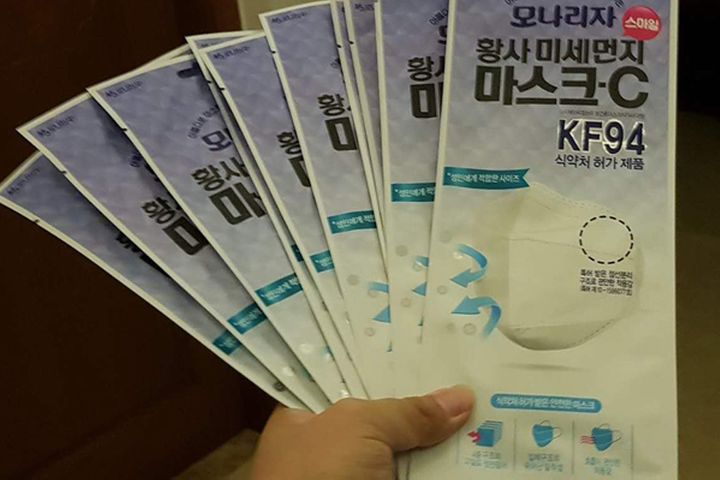 Seoul Prevents Korean Mask Makers From Exploiting High Demand in China
Seoul Prevents Korean Mask Makers From Exploiting High Demand in China(Yicai Global) Feb. 10 -- The South Korean government has brought in new policies to prevent the country's mask-producing factories from hoarding supplies as a deadly epidemic sweeps across China, though several makers deny raising prices.
South Korean producers will be considered hoarders if they hold inventory for five days or more that represents over 150 percent of their average monthly sales in the past year, the country's Ministry of Strategy and Finance said on Feb. 5. Offences will be punishable by up to two years in prison or a fine of KRW50 million (USD42,000). The ministry will also tighten customs procedures for batches of over 1,000 masks that are not donations.
KF94 masks, the local equivalent of the N95 standard, which has a 95 percent filtering efficiency rate, are selling for about CNY25 (USD3.58) in China, about four and a half times as much as before the outbreak of the coronavirus in Wuhan, Wang Yuanyuan, a Chinese student at Korea University, told Yicai Global.
Demand for medical face masks for frontline health workers and among the general Chinese population has spiked amid the spread of the deadly new coronavirus. Some stock have been running out and long lines of people waiting to buy masks have been reported. In response, about 3,000 Chinese businesses, including automakers, have started to also produce masks and make of other medical equipment to meet surging demand.
Kim Chang-Soo, who has run a factory in the South Korean province of Gyeonggi-do for nearly a decade, told Yicai Global that his plant can make up to 50,000 masks a day and is still working on the 1.3 million orders it received before the Chinese New Year holiday. His firm did not raise prices, he said, adding that it actually donated 25,000 masks to China and has guaranteed to deliver on all orders to ensure normal supply to the market.
Only a small number of companies have cashed in by jacking up prices, said Kim Seong-Jee, deputy chief of planning at Onnuri, South Korea's largest pharmacy chain, adding that most firms have not made major increases.
The Korea Innovative SMEs Association's medical device unit has also encouraged mask makers and distributors to keep prices normal to ensure profitability and to prioritize existing orders and those from medical institutions and local governments in China, and to sell or donate masks to Chinese institutions to help battle the virus epidemic.
Editor: James Boynton